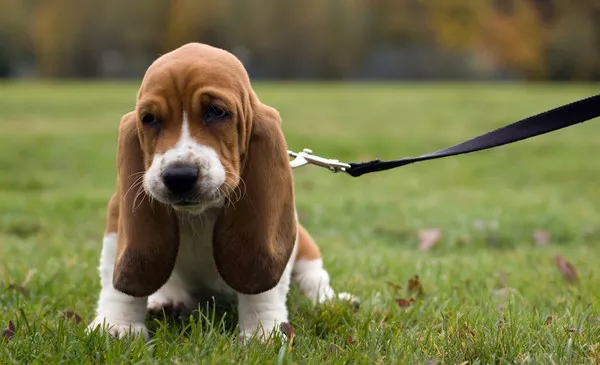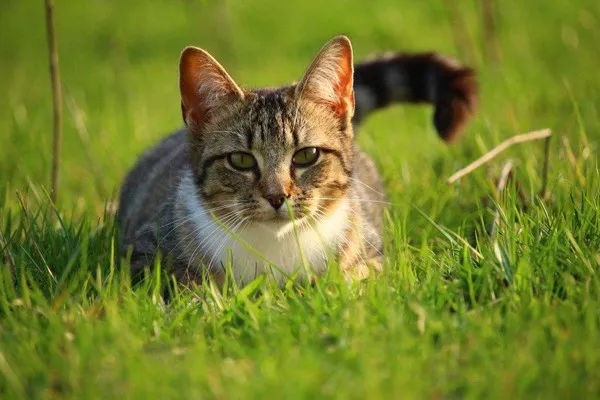Breed Overview:
Basset hounds, with their iconic droopy ears and soulful eyes, have captivated dog lovers for centuries. Originating in France, these low-slung hounds were bred for their exceptional scenting abilities, primarily used for hunting small game like rabbits and hares. Their distinctive appearance and gentle demeanor make them popular companions in households worldwide.
Basset hounds are characterized by their sturdy build, short legs, and long, pendulous ears. They possess a keen sense of smell, second only to the bloodhound, which enables them to track scents over long distances. Despite their hunting heritage, basset hounds are known for their laid-back and affectionate nature, making them excellent family pets.
Social Traits:
Basset hounds are renowned for their friendly and sociable disposition. They typically form strong bonds with their families and enjoy being around people. Their gentle demeanor makes them particularly well-suited for households with children, as they tend to be patient and tolerant. Basset hounds thrive on companionship and may experience separation anxiety if left alone for extended periods.
In multi-pet households, basset hounds usually get along well with other animals, including dogs and cats. Their amiable nature and lack of aggression make them adaptable to various social dynamics. However, early socialization is essential to ensure they develop positive relationships with other pets and humans.
Attachment Style:
While basset hounds are known for their affectionate nature, their attachment style can vary from dog to dog. Some bassets may exhibit a strong preference for one particular person in the household, forming a deep bond with their chosen companion. This preference often stems from spending the most time together or sharing similar activities and routines.
However, basset hounds are generally loving and loyal to all members of the family, rather than exclusively bonding with one person. They enjoy the company of everyone in the household and may seek attention and affection from multiple individuals. Their laid-back demeanor makes them adaptable to various social situations, welcoming interaction from both familiar faces and newcomers alike.
Training and Socialization:
Training a basset hound requires patience and consistency due to their independent nature. While they are intelligent dogs, they can also be stubborn and easily distracted by scents, which may pose challenges during obedience training. Positive reinforcement techniques, such as praise, treats, and consistency, are effective in teaching basset hounds basic commands and behaviors.
Early socialization is crucial for basset hounds to develop appropriate social skills and manners. Exposing them to various environments, people, and animals from a young age helps prevent shyness or fearfulness later in life. Proper socialization also enhances their ability to interact positively with strangers and other pets, reducing the likelihood of aggression or anxiety in unfamiliar situations.
Case Studies:
Several basset hound owners have shared anecdotes highlighting their dog’s social preferences. One owner, Sarah, recounts how her basset hound, Daisy, formed a strong bond with her teenage son. Despite being friendly with the entire family, Daisy would always seek out her son for cuddles and playtime, demonstrating a clear preference for him.
In contrast, another owner, Michael, describes his basset hound, Max, as a social butterfly who enjoys the company of everyone he meets. Max eagerly greets visitors with wagging tail and sloppy kisses, showing no signs of favoritism towards any particular family member. These case studies illustrate the variability in attachment styles among basset hounds, emphasizing the importance of individual personality traits.
Expert Opinions:
Veterinarians and canine behaviorists offer valuable insights into the social behavior of basset hounds. Dr. Emily Jones, a veterinarian specializing in companion animals, explains that while basset hounds are affectionate and sociable dogs, they may develop strong attachments to specific individuals within the household. She advises owners to nurture these bonds through regular interaction and positive reinforcement.
Canine behaviorist, Dr. Michael Roberts, emphasizes the significance of early socialization in shaping a basset hound’s behavior. He recommends exposing them to various people, animals, and environments during puppyhood to prevent potential behavioral issues later in life. Dr. Roberts also stresses the importance of ongoing training and mental stimulation to keep basset hounds engaged and well-adjusted.
Care Requirements:
Meeting the care requirements of a basset hound is essential for fostering a strong bond and promoting sociability. Regular exercise is crucial to keep these energetic dogs physically and mentally stimulated. Daily walks and playtime in a fenced yard allow them to indulge their natural instincts to sniff and explore.
Additionally, proper grooming is necessary to maintain their coat and prevent skin issues. Basset hounds are prone to ear infections due to their long, droopy ears, so regular cleaning and inspection are vital. Providing a balanced diet, regular veterinary care, and ensuring a safe and comfortable environment further contribute to their overall well-being and sociability.
Adoption Tips:
For those considering adopting a basset hound, compatibility with the owner’s lifestyle is key. While basset hounds are loving and affectionate companions, they require commitment and patience due to their independent nature and occasional stubbornness. Prospective owners should be prepared to invest time and effort into training and socialization to ensure their basset hound develops into a well-behaved and sociable pet.
It’s also essential to consider the unique characteristics of the breed, such as their tendency to drool and their penchant for following scents. Potential adopters should be willing to accommodate these quirks and provide appropriate care and maintenance to keep their basset hound healthy and happy.
In conclusion, basset hounds are renowned for their friendly and sociable nature, making them beloved companions in households worldwide. While they may form strong attachments to specific individuals, they generally enjoy the company of all family members and get along well with other pets. With proper training, socialization, and care, basset hounds thrive as affectionate and well-adjusted members of the family.
Related Topics:





















